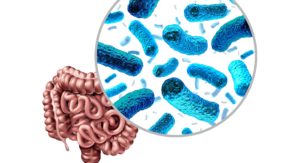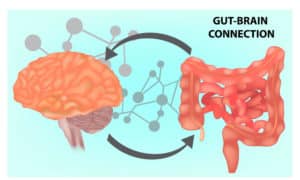CONTACT
We will reply as soon as possible.
Enevia Health, LLC
30 N Gould Ste N, Sheridan, WY 82801, USA
Currently no one disputes the relationship and interaction between the intestinal microbiome and the brain. Little by little we are better understanding this bidirectional communication between the brain and the intestine, so we know that the microbiome can affect the brain and vice versa.
Let's see how the following review: «Microbiome–Gut–Mucosal–Immune–Brain Axis and Autism Spectrum Disorder (ASD): A Novel Proposal of the Role of the Gut Microbiome in ASD Aetiology» provides a new vision on autism spectrum disorder (ASD), to do so it studies the relationship between the intestinal microbiome and the brain, through the microbiome-gut-immune system-brain axis, and its influence on the etiology of ASD. It focuses on seeing how imbalances in the intestinal microbiota can influence the pathogenesis of ASD, exploring how inflammation, oxidative stress and neuroendocrine modulation are involved.

This new concept, with a broader and more comprehensive perspective, in which the connection and interaction of the intestinal microbiota, the intestinal mucosa, the immune system and the brain is considered, will take center stage and play a fundamental role in the health and development of the individual. Learning about the connections between the brain, the immune system and the intestine could help in diagnoses and possible new therapies.
The interaction between all these elements (microbiota, intestinal mucosa, immune system and brain) occurs through different biochemical, immunological and neuronal signals:
We know that certain diseases can be related to an altered composition of the intestinal microbiome or dysbiosis, such as inflammatory, autoimmune diseases, cancer and obesity, and that errors in the communication pathways between the intestine and the brain can produce neuropsychiatric disorders and affect functions. cerebral. It will be necessary to understand and know the modifications produced both at the cellular and molecular level due to intestinal dysbiosis and in this way help in the development of new therapeutic approaches.

Alterations in the intestinal microbiota, the intestinal barrier, the immune system and/or the communication between the intestine and the brain can produce communication errors in the axis (MGMI-Brain Axis). Could these communication errors contribute to the etiology and expression of ASD symptoms?
Let's look at some statements:
In the review they took into consideration some research carried out in humans, in some of them associations were obtained between intestinal dysbiosis and greater severity of ASD symptoms, in others connections were found between dysbiosis and risk of ASD, as well as due to genetic and environmental factors. . In those in which interventions were carried out directly on the microbiome, improvements in behavior were obtained.

With all this, the review concludes that the possibility that dysbiosis, intestinal permeability and a dysfunction in the MGMI-Brain Axis communication have a role in the pathogenesis of ASD should be considered, suggesting that they should be taken into account. take into account new therapeutic strategies giving prominence to the composition of the intestinal microbiome.
The close relationship between these systems reveals the need to study and address both mental health and gastrointestinal health in a comprehensive and joint manner.
This makes us wonder if there is a significant variation in the composition of the intestinal microbiota of children with ASD and thus a possible therapeutic route.
Some research suggests that modulating the gut microbiome could have beneficial effects on the health and well-being of people with ASD. These individual interventions would be aimed at modulating the microbiome, focusing on dietary control, the use of probiotics and prebiotics. In this way, the intestinal microbiome would become a potential therapeutic target in cases of ASD.
Article written by Enevia Health Collaborator: Loles Marco
Graduated in Human Nutrition and Dietetics.
lolesmarcobermudo@gmail.com
To learn more about these topics, we invite you to visit our blog, where you can find articles, information of interest and scientific advances in health, enter the blog through: https://eneviahealth.com/blog/
We will reply as soon as possible.
30 N Gould Ste N, Sheridan, WY 82801, USA
Our groups are the ideal platform to learn and share your scientific concerns about neurodevelopment issues
*Our purpose is informational only, it is not intended to be a substitute for medical advice, diagnosis or treatment.
We are working on our website. For any queries, you can contact our customer service team at atencionalcliente@eneviahealth.com